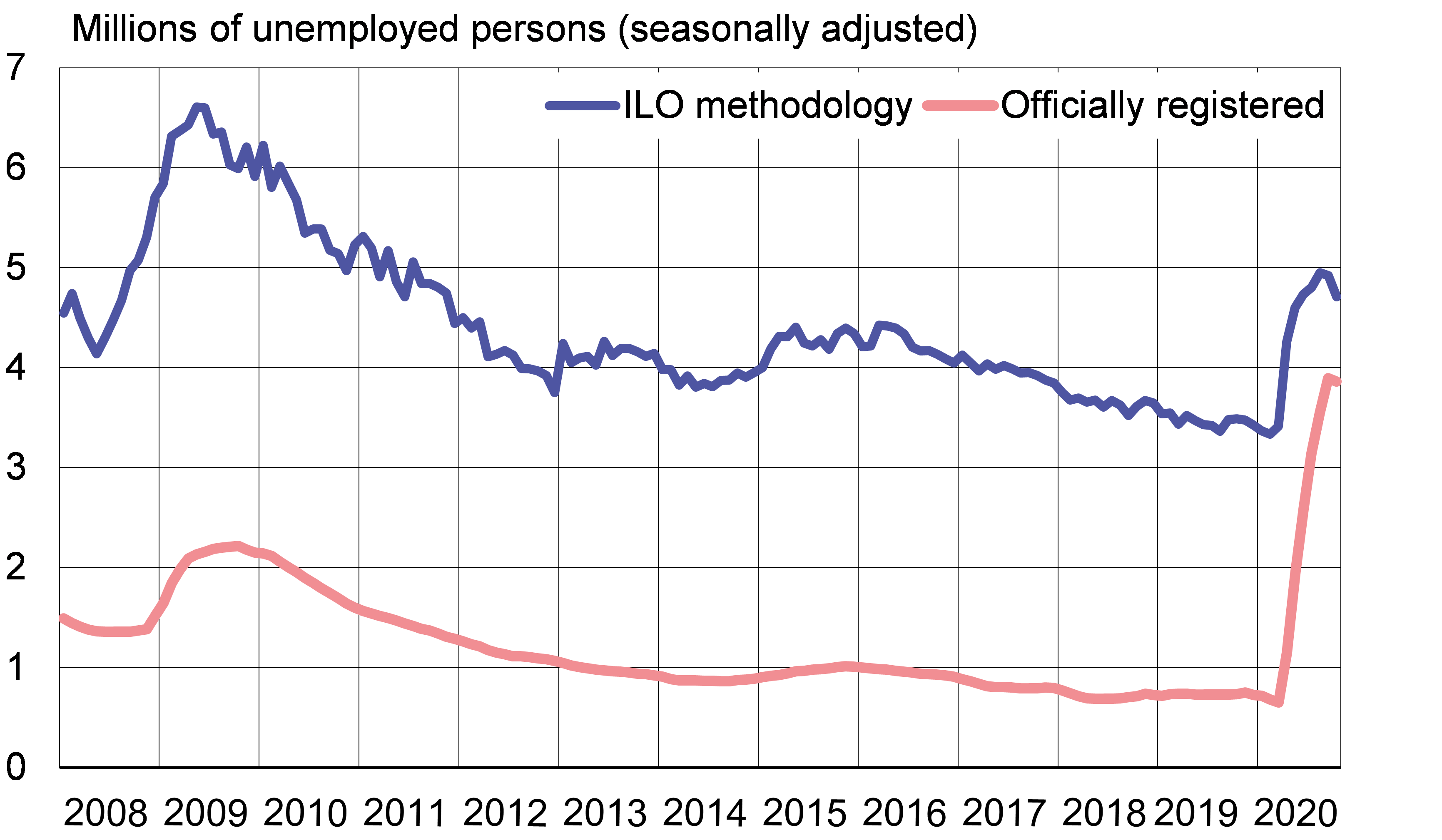BOFIT Weekly Review 49/2020
Response of Russian labour market to the economic crisis manifested through various channels
The covid-19 epidemic has shaken Russia’s labour market with declining employment, rising unemployment, wages cuts and shorter working hours. While economic recovery has helped the labour market situation stabilise in recent months, the worsening covid situation now overshadows hopes of improvement in the labour market.
During the covid pandemic, the unemployment rate in Russia (based on the ILO methodology) has increased by about two percentage points. Unemployment ceased to rise in September, and the unemployment rate in September and October remained steady at 6.3 %. Russia’s unemployment rate is the highest in a decade, but still lower than during the 2009 recession. The number of persons officially registered as unemployed has skyrocketed to record levels. Traditionally, only a small number of unemployed persons in Russia bothered to register as unemployed because unemployment benefits were meagre and application for such benefits burdensome. Last spring, the amount of benefits paid to unemployed individuals was sharply increased and the application process simplified. Half of those now registered as unemployed did not participate in the official labour force earlier. The enhancements to unemployment benefits, however, are only temporary, and many of them expired at the beginning of October. The number of persons officially registered as unemployed declined slightly in October. In addition to greater numbers of unemployed persons, the number of persons who have left the labour force has increased.
As in earlier economic crises, the Russian labour market has adjusted through channels other than higher unemployment. The average monthly wage in the spring contracted sharply for a brief period. In various surveys up to 40 % of respondents reported that their wages had been reduced. The number of hours worked also fell sharply last spring as many workers were put on involuntary holiday or saw their working hours reduced.
The covid pandemic is also reflected in the grey labour market and in migrant labour, even if the exact impacts are difficult to determine. Rosstat estimates that the number of people working in the informal labour market declined sharply last spring. Covid has particularly affected the service sector, where grey labour is more common. It is easy for an employer to sack informal workers. On the other hand, there are signs that some workers have sought out jobs in the informal sector in order to make money while drawing unemployment benefits. A large part of Russia’s migrant labour force (possibly as much as 40 % in Moscow) appear to have lost their jobs last spring and some of them returned to their home countries. Covid restrictions have caused the number of migrant workers entering Russia to decline sharply this year. There are indications that this has caused even labour shortages this autumn in certain regions and branches.
Covid and hikes in unemployment benefits have caused the numbers of ILO-defined and officially registered unemployed to spike

Sources: Rosstat and BOFIT.